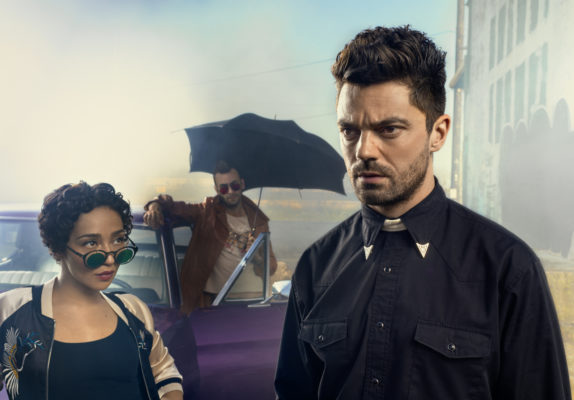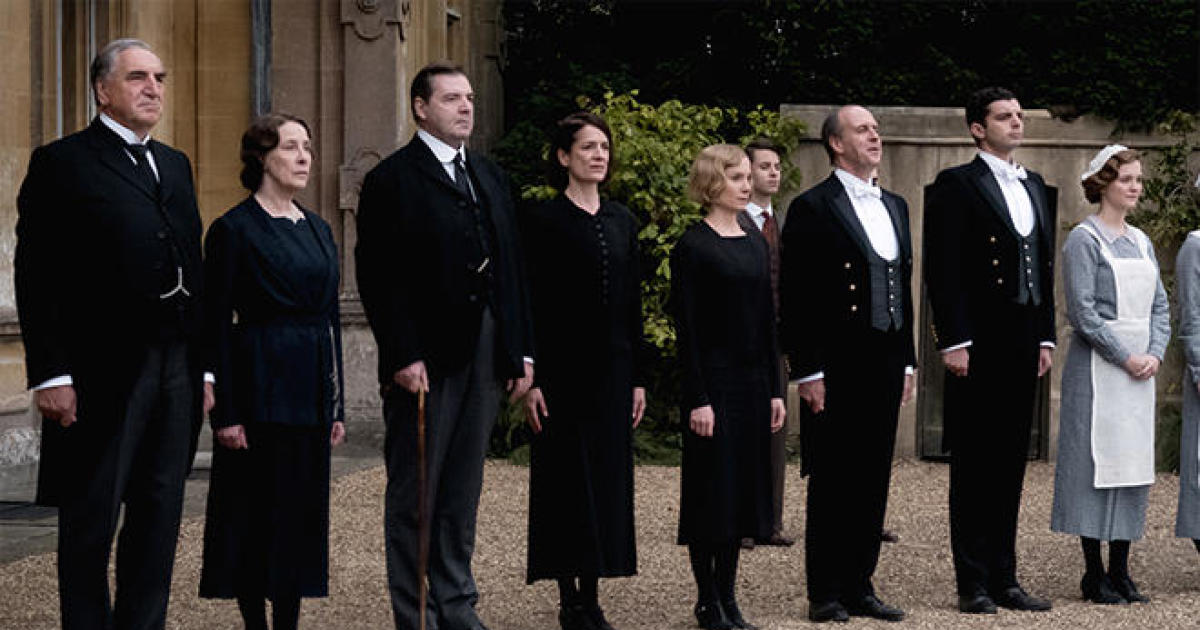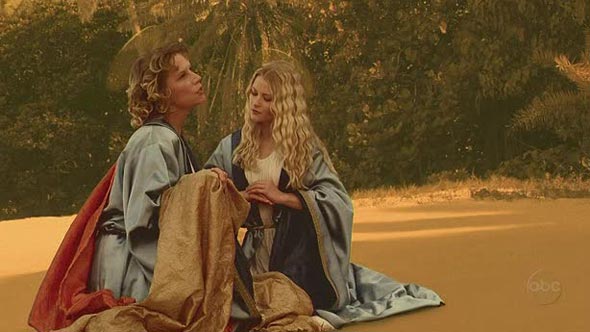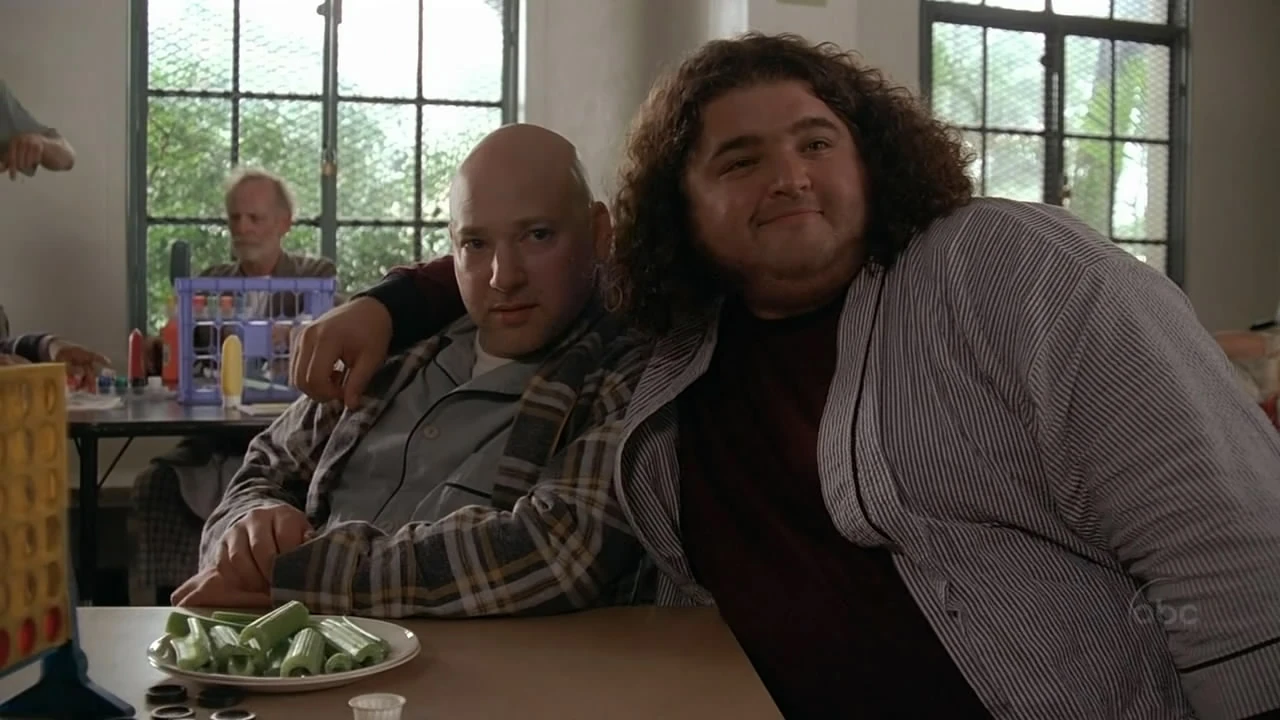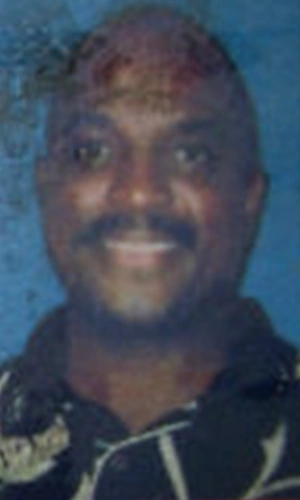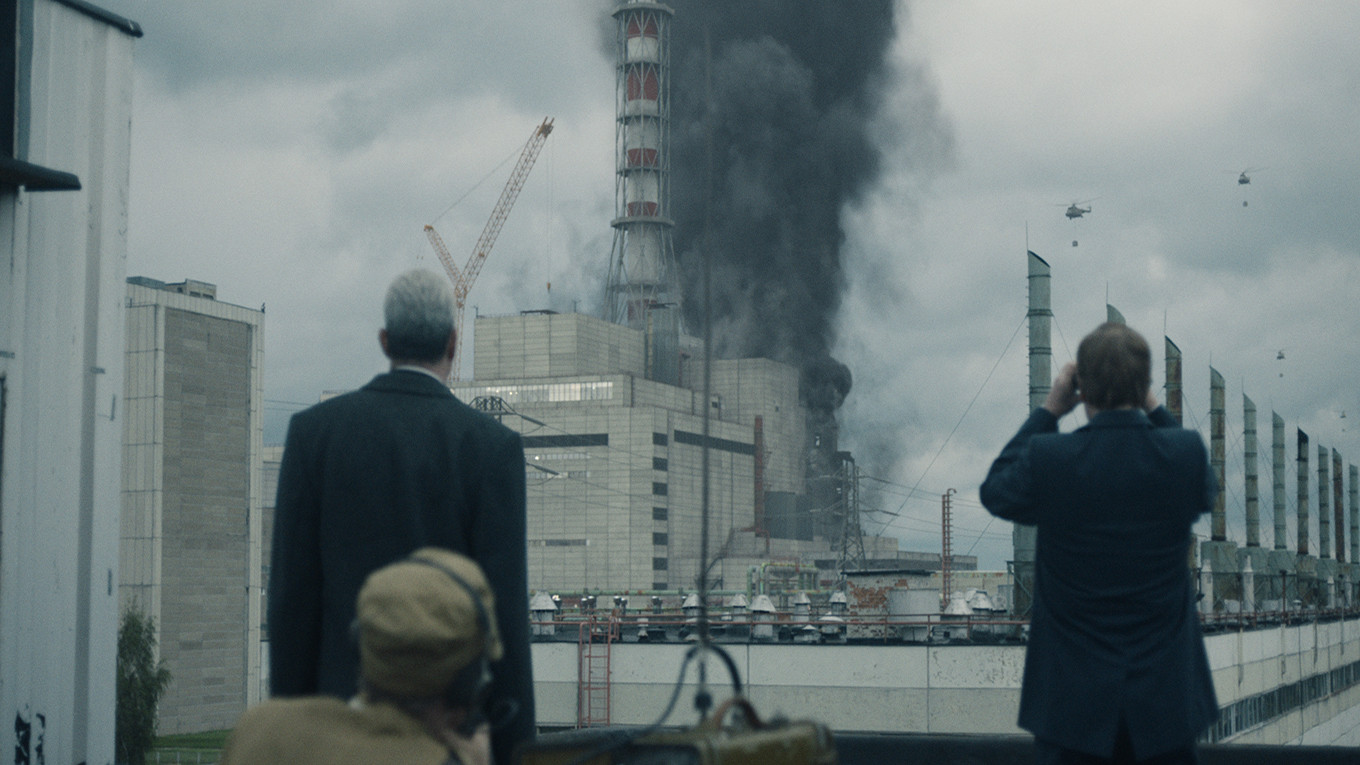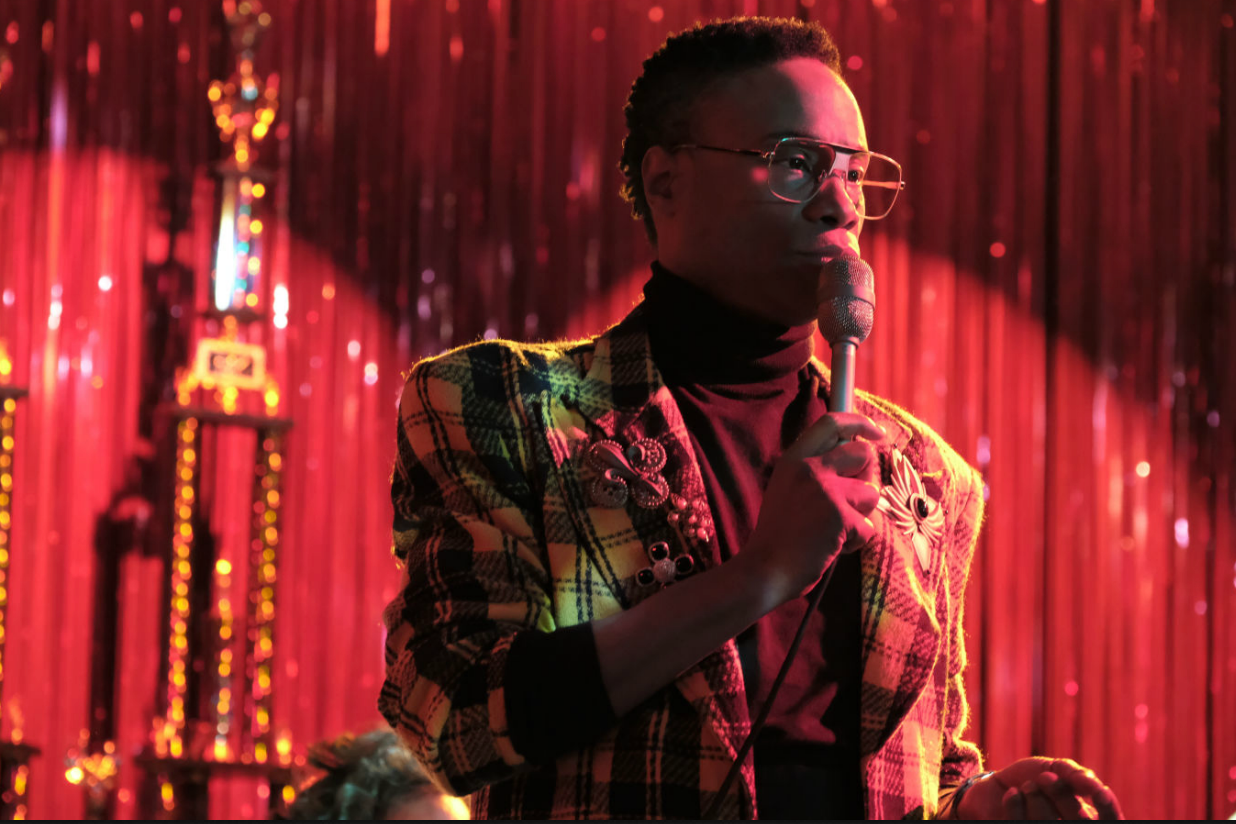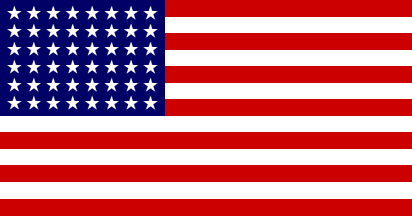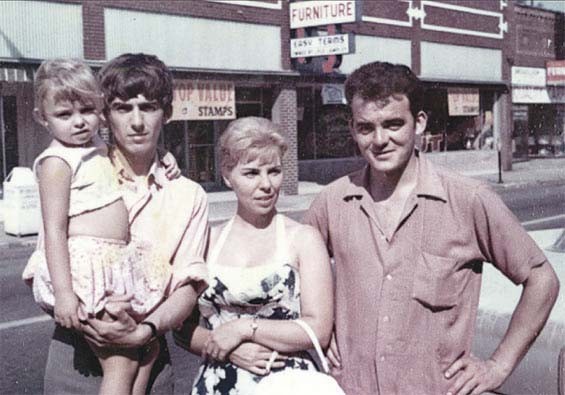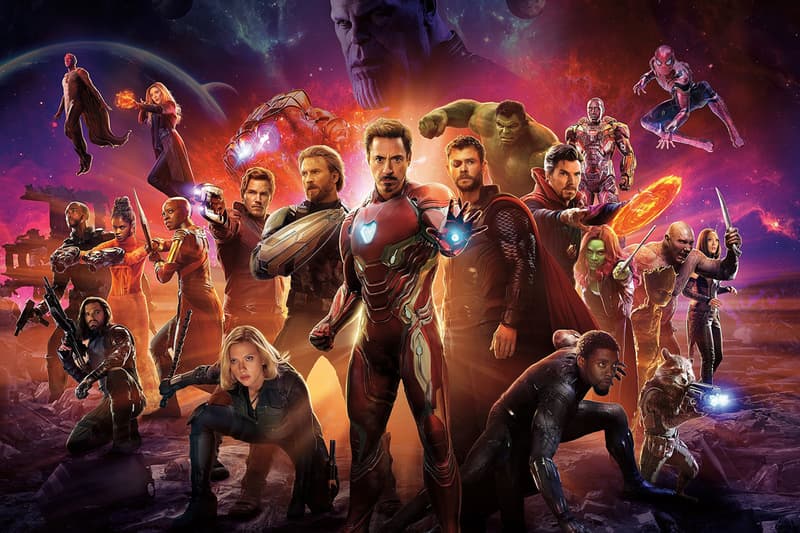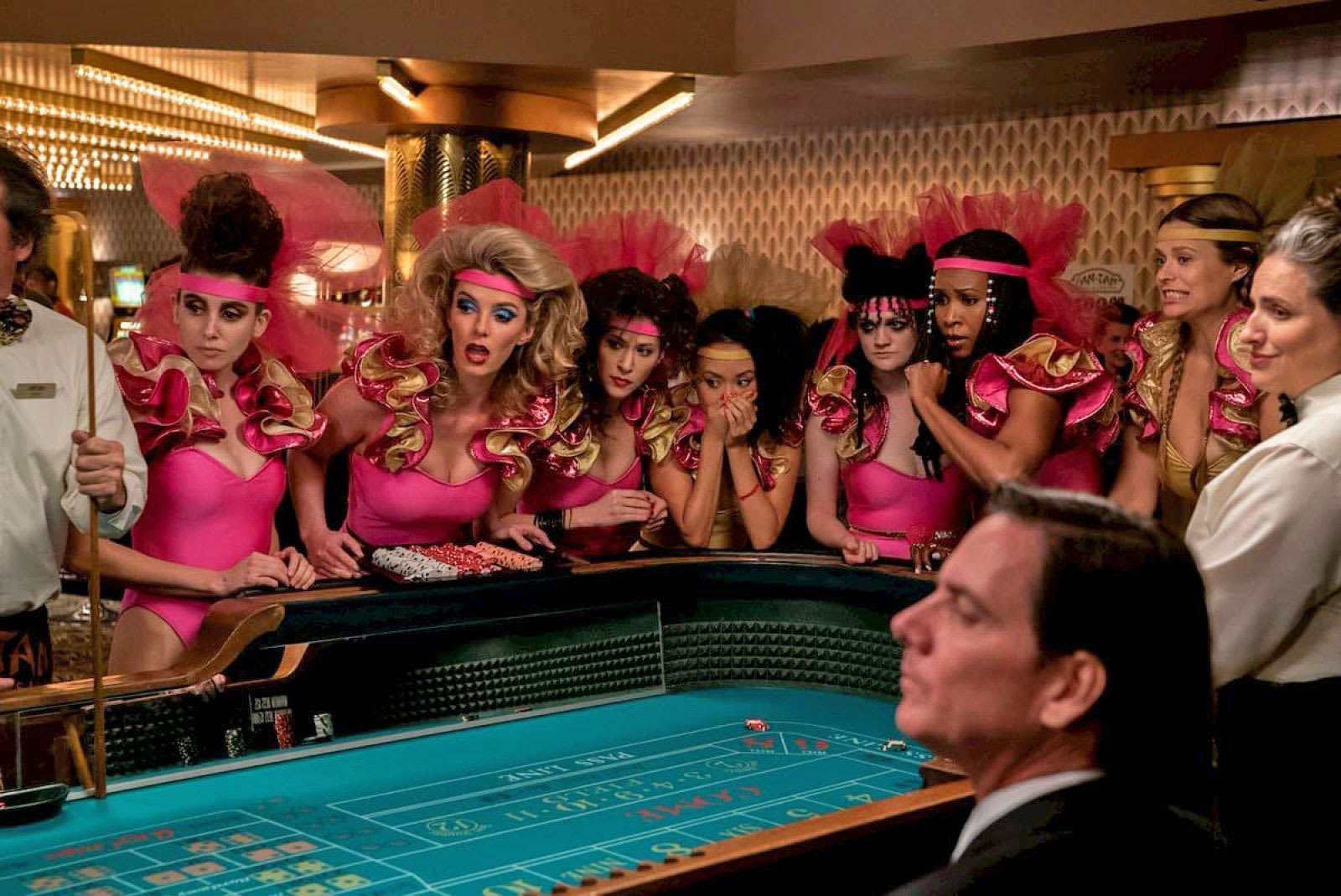Monday, September 30, 2019
Sunday, September 29, 2019
Preach, Brother
Tonight is the final episode of Preacher. It's an AMC drama that's been on for four season. No matter how it ends, let's say goodbye. It's been the most outrageous show on television--at least on basic cable, but probably anywhere.
It's about Jesse Custer, a hard-living preacher who gains the power to make others do whatever he says (though it only works if they understand English and have a soul). He's searching for the Lord to find an explanation for why things are the way they are. His companions are Tulip, a two-fisted gal who's been his partner in crime for a long time, and Cassidy, a fun-loving Irish vampire who's a new friend.
The first season is set in a small Texas town where the Preacher is trying to live a simple, honest life. The second season has the trio travel to New Orleans on their quest. In season three, Jesse returns to Angelville, the voodoo-run household where he was raised. And this final season is all over the place, though much has been set in Australia.
Some of the characters we meet along the way: Eugene, an innocent whose face has been torn apart and whom Jesse sends to Hell; the Saint of Killers, who's after Jesse and can't be stopped; Herr Starr, the ruthless head of the Grail, a secret religious organization trying to bring about the apocalypse; Adolf Hitler, who escapes from Hell with Eugene; and Humperdoo, the modern Messiah.
Some have called the show trash. Maybe they're right, but I don't mind. Some have called it blasphemous. I guess it is, except the whole thing is so over the top it's hard to be offended. Overall, though they overdo it, the show has been fun. Dominic Cooper is fine in the title role, as is Ruth Negga as Tulip, but I think Joseph Gilgun as the vampire Cassidy is the most memorable.
Anyway, now that it's ending, if you haven't seen it, wait one more day, then check it out from the beginning. Don't worry, if it's too much for you, give up.
Saturday, September 28, 2019
You Had Me, Then You Lost Me
Miles Davis died 18 years ago today. There's a documentary out about him, Miles Davis: Birth Of The Cool. It's a pretty good recap of his life, but it has a problem that's hard to get around.
Davis was a giant of jazz. There's Armstrong, Ellington and only a few others as important. He was first noticed in the mid-40s playing bebop, and by the end of the decade revolutionized the world of jazz with his nonet and the music that would become Birth Of The Cool.
Then, a decade later, came Kind Of Blue with its modal improvisations. Once again he revolutionized the music, along with creating the best-selling jazz album of all. So far so good. His career is full of highlights.
Then, a decade later, he recorded Bitches Brew. He recognized that jazz was dying and rock and funk were taking over, so he incorporated new sounds. This jazz-fusion album was his fastest-selling, and he became bigger than ever.
But--and here's the problem--the music is awful. It's not good jazz, it's not good rock, it's not good funk. So what if it was a revolutionary sound? As long as you tell his biography chronologically, your final act has his worst stuff.
So while you're enjoying his work along the way, you're steeling yourself for the letdown. But then, life is not built like a Hollywood story.
Friday, September 27, 2019
Fern Turn
Between Two Ferns is a YouTube phenomenon where Zach Galifianakis does bizarre little interviews with real celebrities. You wouldn't think you could adapt it to long-form, but they've given it a shot. Thus, Between Two Ferns: The Movie, just dropped on Netflix.
To make a story of it, we go behind the scenes and re-contextualize the interviews. It now turns out Between Two Ferns is a show hosted by an unknown named Zach Galifianakis at a North Carolina public access station. He gets big-name celebrities because Will Ferrell (also fictionalized, but playing a big star) funnels his friends there--Ferrell thinks Zach is ridiculous and unaware, and enjoys watching the train wrecks that are his interviews.
The main action of the TV movie, for reasons too negligible to go into, has Zach and a small crew traveling cross-country to get ten interviews with celebrities. While the movie has fun moments, and the snippets of the interviews are the best parts, the filmmakers seem to (intentionally?) misunderstand the point of the original internet show.
More than once the Netflix movie makes it clear that Galifianakis is an idiot and the interviews are funny because people are laughing at what a fool he is. This is not why the original bits worked.
Yes, Galifianakis was playing a jerkier version of himself, but what was funny was the deconstruction of the celebrity interview. Instead of the sycophancy of most talk shows, Galifiankis is annoyed or bored with his guests and their tiresome, overblown celebrity. The questions he asks are rude and well-targeted at his guests' weak spots. The guests, of course, are in on the joke (sometimes quizzically putting up with it, sometimes fighting back). I'm not sure why Netflix feels they've got to soften the blow. Did they believe they needed to make Galifiankis more sympathetic if we're to follow him around an hour and a half--better a buffoon than a social critic?
Thursday, September 26, 2019
Abbey Road
The Downton Abbey movie is out, and doing quite well. Who would have thought so many people would want to see something they used to get for free? But then, Downton Abbey was more than just a show. It was nostalgia for an age that none of the viewers lived through. It can be fun to watch or read about life at a great British home, and there have been plenty of movies and TV shows about that subject. But what was it really like?
I'm asking, I don't know. The first question is would you have been a master or servant? A show like Downton Abbey (and earlier, Gosford Park and, earlier, Upstairs, Downstairs) plays it both ways, where we get involved with the high and the low. But we all know the odds are a lot better we'd be the servants and not the upper crust.
And while the downstairs crew have a lively old time in these shows, I have to assume it was a life of drudgery and poverty, mixed with a fear you'd lose what little you had. And it wasn't easy to rise above your station. The system was rigged. The ruling class made the rules (thus their title) and got to be in charge not due to effort so much as birth.
I was just reading J. M. Barrie's The Admirable Crichton, which is set (in part) at such a home, and was written in 1902 when such estates existed. It's a fantasy/comedy that questions the nature of things (though not too seriously) and makes the comic point that the servants don't want equality--they enjoy being treated with contempt by their masters, partly because it allows them to treat those even lower with contempt.
I hear the Downton Abbey movie has a stirring speech from Maggie Smith as the Dowager Countess explaining why Downton Abbey must go on. This is what the audience wants to hear, I suppose, but as the film is set in the late 20s, we know hard economic times and WW2, among other things, will help bring it down. Stately homes in England today are mostly tourist sites.
PS I also hear (bit of a spoiler) that the Dowager Countess has to see a doctor in the film. Since the character is a descendant of Lady Bracknell, I couldn't help but be reminded of The Importance Of Being Earnest:
Algernon. [Airily.] Oh! I killed Bunbury this afternoon. I mean poor Bunbury died this afternoon.
Lady Bracknell. What did he die of?
Algernon. Bunbury? Oh, he was quite exploded.
Lady Bracknell. Exploded! Was he the victim of a revolutionary outrage? I was not aware that Mr. Bunbury was interested in social legislation. If so, he is well punished for his morbidity.
Algernon. My dear Aunt Augusta, I mean he was found out! The doctors found out that Bunbury could not live, that is what I mean—so Bunbury died.
Lady Bracknell. He seems to have had great confidence in the opinion of his physicians. I am glad, however, that he made up his mind at the last to some definite course of action, and acted under proper medical advice.
Wednesday, September 25, 2019
Last Lost List?
For some reason, The Hollywood Reporter has a list of all the episode of Lost, worst to best. I guess because it's the fifteenth anniversary. The fairly idiosyncratic list is by Josh Wigler. Lost has 111 episodes (according to Wigler--he combines two-parters) so I won't mention them all, but let me make a few comments along the way. I should note that I haven't rewatched the show since it went off the air and Wigler has. Maybe your take changes once you know where the plot is going, though I would think those changes are mostly for the worse, since the sixth and final season was a disaster.
Lowest is "Fire + Water." This Charlie episode is from season 2 and generally gets low rankings. Last, I don't know--especially when there are so many awful episodes from season 6.
Numbers 104, 103 and 102 are all from season 6. That's good, though Wigler will rate a bunch of episodes from that season too high. Pretty much all of them should be in the bottom 30.
Number 100 is "Stranger In A Strange Land," the one about Jack's tattoos. This is generally rated the worst by fans, so Wigler is making a point by putting eleven episodes below it. Maybe it's not the worst, but he's still too kind.
"Dave" is 81--this is the episode where Hurley deals with an imaginary friend. It's generally considered pretty bad, though Wigler says it looks better when you know more about the Smoke Monster and where Hurley will end up. Perhaps.
"Some Like It Hoth" from season 5 is at 79. I remember liking this one a lot, though I was a big fan of season 5 in general, which many didn't go for.
"The Life And Death Of Jeremy Bentham" is only ranked 77, though I consider it top twenty.
"The Economist," a Sayid episode from season 4, is only 75. I thought it was pretty good--should at least be in the top half.
"The Moth" is 73. It's a first season episode about Charlie, and while it might not be important in the overall scheme of things, I thought at the time it was one of the better episodes.
"The Little Prince" is 70. Wigler simply asks of this episode who was on the other outrigger. I quite agree--there is simply no excuse for the producers never answering this question. But you can't blame this episode for that.
"Cabin Fever" is 68. It's the one where Locke meets the Man in Black--I'd call it a classic, at least top 30.
"A Tale Of Two Cities" is ranked 62. It's the season three opener. For the first scene alone it should be top forty.
"Enter 77" from season 3 is ranked 58. This is the one where we meet Mikhail, and should probably be top forty.
"Across The Sea" is at 55. This is the season six episode that goes far back in history. It's a controversial episode, to say the least. I think it's ranked way too high.
"Follow The Leader" is ranked 52. It's a fine season five episode where we get an idea what the new John Locke is thinking. It should be higher.
50, 49, 48, 47 and 46 are all season six episodes. Absurd.
"LA X" is the beginning of season 6--ranked too high at 40, but at least they hadn't screwed up the show yet.
From season two, "The Long Con" is ranked 36. I don't understand why people like this episode. It's about Sawyer doing a pointless con that he would never bother with which can't succeed under any circumstances no matter how it ends up and which doesn't matter at all in the scheme of things. This episode should never have happened.
"Lockdown" is 34. It's a classic and maybe should be a bit higher.
"One Of Them" is 31. It's the episode that brings us Henry Gale. Maybe a little bit higher.
"Dead Is Dead" from season 5 is ranked at 26. It was one of my favorites when I first saw it. Now that I know where it's going, it's a little weaker, but still great--maybe top ten.
"Man Of Science, Man Of Faith," first episode of season two, is ranked 24. For the opening segment alone it should be top ten.
"Greatest Hits" is at 22. It's the "Not Penny's Boat" episode. Some would put it in the top ten, but I think this is about right.
The top twenty is going smoothly and then at 14 comes "Ab Aeterno," the Richard Alpert story. It's better than most season six episodes, though it spends way too much time in the past when I wanted more in the present or near past. Probably shouldn't be in the top half.
And at 12 you've got "Expose," featuring the infamous Nikki and Paulo. Yeah, nice ending, but they were a mistake. Not top forty.
"The End"--the show's finale--is at 10. Nothing in season six should be within smelling distance of the top ten.
Ranked at 6, for some reason, is "Tricia Tanaka Is Dead"--it's a Hurley episode and not a particularly great one. What's it doing here? At least Wigler recognizes this is an odd choice.
The Pilot episode is number 5. It's an impressive pilot physically, but it's not as great as what was to come. (In fact, I didn't become a Lost fan till a couple weeks later.) For that matter, ranked at 4 is "Exodus"--the ending of season one, which wasn't as amazing as a lot of other episodes. Not top ten. Probably not top forty.
The top three are the ones that fans tend to consider the greatest, so no complaints: "The Constant," "Through The Looking Glass" and "Walkabout."
Tuesday, September 24, 2019
When You Hear The Tone
The Jimmy Kimmel talk show was ordered to pay a fine by the FCC for simulating an emergency alert tone--you know, those annoying sounds that let us know of some disaster or whatever. At $395,000, the fine was not inconsiderable
They used the sound in a sketch. The article doesn't say how it was used, but I hope it was worth it. (Will ABC take the money out of Jimmy Kimmel's pocket? The writer's?) It's not the first such fine from the FCC. Other shows have violated the rule, including The Walking Dead, though it's not hard to imagine how it would come in handy on that show.
While I strongly oppose censorship from the FCC, this is the kind of regulation they should be doing. They should make sure, for instance, that people don't block other stations' broadcasting on certain wavelengths. And they should, at least arguably, ensure that emergency codes are used in only specific situations.
Though it makes me wonder how far should they go. You often hear phone rings on shows, and I'm sure millions mistake them for the real thing. At least a few must trip and hurt themselves. How much is that worth?
Monday, September 23, 2019
The E in EGOT
Like millions of others (though less than there used to be), I watched the Emmy Awards. Here are some thoughts--on the awards, not the show itself.
The big question in comedy is Veep, The Marvelous Mrs. Maisel or a surprise like Fleabag. And in drama, will Game Of Thrones be the big winner?
Supporting actor in a comedy was a decent category, but has often been the best. The winner is Tony Shalhoub for Maisel. A fine actor, and his fourth Emmy. A bit of a surprise--I would have guessed Henry Winkler, or maybe Tony Hale, but nothing to complain about.
Supporting actress in comedy--a very competitive category. The winner is Alex Borstein. (The TV bloc was introduced by Family Guy--they couldn't have planned the connection.) She's good, but no Betty Gilpin, Sarah Goldberg or Sian Clifford. She gives a quick and tiresome speech. Her victory does suggest Maisel will be doing better than Veep, though it's early.
Writing for comedy. Some decent stuff, though the Barry episode was something special and a there's a rare nod to The Good Place.. The winner is Phoebe Waller-Bridge for Fleabag. I don't know if I like this. (She's also nominated in the drama category, so she's got a big night ahead.)
Jane Lynch and Luke Kirby--already Emmy winners this year for the guest shots on Maisel--announce the award for direction in comedy. Two nominations for Barry, two for Maisel, one for Big Bang and one for Fleabag. Fleabag wins again. Is it going to win the big one? Big disappointment, since this should have gone to the amazing "ronny/lily" from Barry. Not sure if I want to keep watching.
Lead actor in a comedy. The choices: Bill Hader, Don Cheadle, Anthony Anderson, Michael Douglas, Eugene Levy and Ted Danson. To no one's surprise, it's Bill Hader, repeating. He probably deserves it, though I wouldn't have minded Ted Danson.
Lead actress in a comedy. Brosnahan versus Waller-Bridge versus Louis-Dreyfus--some long names. Brosnahan won last year, Louis-Dreyfus won the six years before that. The winner is Waller-Bridge. I like Fleabag, but don't know if I like this trend.
Now best reality show. If there's a time for a bathroom break, it's now. RuPaul's Drag Race wins. No surprise.
A tribute to Game Of Thrones. Okay, it was a big deal, but let's get to the awards. The whole cast gives an award to supporting actress in limited series or movie. Patricia Arquette wins for The Act (she's also nominated for Best Actress for another show in this category). Just as at the Oscars, she couldn't help but lecture us.
Now director for limited series. Johan Renck beats Ava DuVernay, so Chernobyl beats When They See Us. Perhaps a bit of a surprise, though these were the two big names in the category. We'll see how this plays out.
Supporting actor in limited series. Some names here. The winner is Ben Whishaw for A Very English Scandal. Did the three When They See Us nominees cancel each other out?
Best writing for limited series. Winner is Craig Mazin. Looks like it's Chernobyl's night. (And I guess Fosse/Verdon isn't going to get a lot of love.)
Beast actor for limited series. Plenty of big names. Will Jared Harris win for Chernobyl? Sam Rockwell for Fosse/Verdon? Benicio Del Toro? Mahershala Ali? Hugh Grant? Nope, none of them. It's Jharrel Jerome for When They See Us.
Best TV movie. Will Black Mirror win yet again, this time for "Bandersnatch"? Yes. Fair enough.
A tribute to Veep. The whole cast gives the award for lead actress in limited series. Once again, some big names (including Patricia Arquette again). The winner is Michelle Williams for Fosse/Verdon. That's nice (even if partner Sam Rockwell will have to live with just winning an Oscar). She makes a speech about pay equality.
Award for limited series. Chernobyl. Not exactly a surprise, but it wasn't a lock. (Suppose I should watch it now, but I know how it turns out.)
Time for the variety awards. First, writing. The winner, Last Week Tonight With John Oliver. No surprise.
Best variety sketch series. SNL or something else? SNL. Most nominated show of all. Lorne Michaels accepts. I think he's won 15 of these. Hard to believe he cares any more.
Direction in variety. Winner is Don Roy King of SNL--the rich get richer.
Best variety show--once again, Last Week Tonight. John Oliver keeps winning, like Jon Stewart used to. Is it fair? He's got all week to prepare half an hour, where most of his competitors do it an hour a night.
They say goodbye to a bunch of shows that left this year that weren't as important as Game Of Thrones or Veep. They spend the most time with Big Bang Theory, which was kind of a big deal.
Finally, time for drama. Best supporting actor. Wouldn't it be nice if Jonathan Banks or Giancarlo Esposito finally won for their Breaking Bad/Better Call Saul roles? Then there are three Game Of Thrones nominees--will they split the vote? Nope, for the fourth time, it's Peter Dinklage as Tyrion Lannister. I don't know. GOT was pretty weak this year.
Writing for drama. GOT really doesn't deserve it, but what does? Winner is Jesse Armstrong for Succession. Meh.
Supporting actress in drama. Four from GOT--I would think only Gwendolyn Christie can win of those, but it better be Julia Garner of Ozark, the best reason to watch that show. Thank goodness, she wins--best choice of the night. Hey, no southern accent.
Now is the time for In Memoriam. Nothing wrong with this section, but the show would sure go faster if this were done on-line.
Lead actor in drama. Some interesting choices. The winner--Billy Porter of Pose. The one show in the category I don't watch, so I have no feelings about it. (Porter turned 50 yesterday, so this is a nice gift for him.)
Direction for drama--about half from Game Of Thrones, which is ridiculous. Winner is Jason Bateman for Ozark. A bit odd, though there wasn't anything that stood out in this category, so why not. It's his first Emmy and it's for directing, not acting. Odd. Or is it? A number of actors have won their only Oscar for direction, and maybe it's because more actors vote for these awards than any other category.
Lead actress for drama. Two women nominated from Killing Eve--won't that cause trouble? Winner is Jodie Comer from Killing Eve, so I guess it didn't--though maybe it will on the set from now on. A lot of Brits winning this year, by the way. (Dinklage is an American, but did his accent fool them?)
Now the big finish. First, best comedy series. Is it Barry, Fleabag, The Good Place, The Marvelous Mrs. Maisel, Veep, Russian Doll or Schitt's Creek? To no one's surprise at this point, Fleabag. A good show, but maybe the TV Academy is too impressed.
Best drama. The nominees: This Is Us, Game Of Thrones, Better Call Saul, Killing Eve, Bodyguard, Succession, Ozark and Pose. Whew, that's a lot! If Killing Eve wins, Phoebe Bridge-Waller will be the only person aside from David E. Kelley to win best comedy and drama series the same year. But it's Game Of Thrones, after all that. Its final season was weak, but maybe it's for the phenomenon as a whole.
A not very exciting Emmy show, with so-so choices. Time to start the countdown to Oscar.
Sunday, September 22, 2019
IB
Irving Berlin died exactly 30 years ago (at the age of 101). As Jerome Kern put it, "Irving Berlin has no place in America music--he is American music."
Saturday, September 21, 2019
Wells Sells
H. G. Wells (Herbert George, if you were wondering) was born on this day in 1866. He died in 1946. He wrote a lot of various types of fiction and was also a noted social critic and socialist. In his day, he was one of the world's most highly regarded authors, but now he's considered a children's writer, and is almost solely remembered for his science fiction.
Indeed, today he's called, along with Jules Verne, the Father of Science Fiction. But back in the day Verne didn't have the same reputation Wells had. Quite a burn they're now put in the same box. I suppose Wells was more a phenomenon of the turn of the last century, and his stock started to drop while he was still alive.
But still, the stuff he did leave behind is pretty memorable. Perhaps it doesn't read as well as it once did, but his titles still resonate. If nothing else, his work lives on in movie after movie. What am I talking about? To pick the most obvious, there's The Time Machine, The Island Of Doctor Moreau, The Invisible Man and The War Of The Worlds.
How many movies and TV shows are based on his stories? I checked the IMDb and there are more than a hundred. I think he'd be happy he's doing so well in a technology that didn't exist when he started writing.
Friday, September 20, 2019
All Around The World
It was exactly 500 years ago that Ferdinand Magellan set forth on a voyage that circumnavigated the Earth. Why is this not getting more coverage?
September 20, 1519, he and his ships left Spain, headed for Rio de Janeiro. Magellan was actually Portuguese, but King Manual 1 of Portugal wasn't interested, so the voyage was backed by Charles 1 of Spain.
There were many adventures along the way, and one ship (with plenty of spices) finally made it back to Spain on September 6, 1522. The most dangerous adventure, if you want to call it that, was the Battle of Mactan in the Philippines. Magellan had converted many locals to Christianity, but those on the island of Mactan didn't get with the program. Indeed, during the battle, Magellan was killed.
Though he had died, when his ship returned, his fame was secured. Many things have been named after him since, though I think the best are the two dwarf galaxies known as the Magellanic Clouds.
Thursday, September 19, 2019
Stars And Stripes Forever
I was just thinking about how this year contains the 60th anniversary of both Alaska and Hawaii being admitted to the union.
That makes 1959 a pretty big year for new states--Alaska in January and Hawaii in August. They were the first new states since New Mexico and Arizona in 1912. I'm sure Americans got pretty used to 48 states. And it makes for a nice looking flag, with the stars lined up six by eight.
So after two generations of 48 states, it must have been weird getting two more. (I wonder how many 47 and 49 star flags were sewn and out of date almost immediately?) And that's how it would seem now. We've gone three generations without any new states, and somehow 50 seems the exact right amount, even though it's arbitrary. (And a 51-star flag wouldn't be tough--three rows of nine mixed with three rows of eight.)
So we're living in an historical anomaly. Until the 1920s, there wasn't a single decade in American history when at least one new state wasn't admitted. Have we sort of settled down? No more destiny to manifest? Or is it just too much a political struggle to let in anyone new and upset the balance we've maintained?
Wednesday, September 18, 2019
Long Ago And Far Away
From 1980 to 1994, the best comic strip was The Far Side. Maybe it was the best ever. Created by Gary Larson, its single-panel humor was a mixture of the sharp and the surreal. Then, in 1995, he just stopped. That's when I stopped reading the comics section of the paper.
But now it looks like Larson, who will turn 70 next year, is coming out of retirement. According to the Far Side website, the strip will be coming back. Presumably the new comics will be online.
I don't recall anything like this ever happening. Far Side fans are doing cartwheels. As they should. A few days ago, the creators of Friends said they wouldn't do a reunion--and with TV doing lots of reunions, you know the networks would pay top dollar for that one. When I heard that I said hooray. Sitcoms have their time and place, and trying to recapture the magic is a bad idea.
But a cartoon? One that grows out of the head of a single person? As long as Larson is still of sound mind and body, why not? Okay, there's no way of knowing if Larson's still got it, or if we'll still want it, but I'm sure looking forward to finding out.
Tuesday, September 17, 2019
Another Country Heard From
Today is International Country Music Day. When I heard that I had some questions. First, does the "international" part mean it's music from every country? Turns out no, it's an international celebration of what is known as country music in the United States.
Which leads to my second question: does everyone else call it "country music" or just us? If others do call it that (whether in English or another language) aren't they kind of offended? How come the "country" is America? It's like calling a baseball championship the World Series.
Also, just how popular is "country music" across the world? It's certainly been big here in the U.S. for decades, but did it catch on elsewhere the same way rock 'n' roll and rap did?
I believe the phrase "country music" was coined in the mid-1900s as sort of an improvement over "hillbilly music." Another common phrase in the music industry has been Country and Western, or C&W, which also added all those western cowboy songs. Though just how related were they that they get thrown into the same category?
Monday, September 16, 2019
The Beatle Conquers America
It was on this day in 1963 that a Beatle first set foot in America. It was George Harrison. (It could have been Ringo if he'd followed through on his plan before he joined The Beatles to move to this country. Of course, if he'd done that, there might not have been a Beatles.)
George's sister Louise was married to a mine engineer and earlier in the year they'd moved to Benton, Illinois, a mining community. By September, The Beatles had conquered England and were on a break. John took wife Cynthia to Paris. Paul and Ringo took their significant others to Greece. And George and brother Pete decided to visit their sister.
She'd already received some Beatles singles and had even gotten them played on the local radio station. While George was there, enterprising Louise arranged for him to play with a local band, The Four Vests, at a VFW hall. No one knew they were seeing one of the biggest stars in the UK--I wonder if they figured it out a few months later when The Beatles conquered America. By all accounts George did a good job and the others thought he had a future in the business.
Later, a couple of the Vests went to a music store with George, where he bought a Rickenbacker guitar which he'd play when he returned to the U.S. in glory the next year. He also bought some records, including "Got My Mind Set On You," which he'd record in 1987--the cover went to #1.
George and Pete also went to St. Louis and New York. I wonder if George lorded it over the band when they all came together. "Let me show you this great place I know."
Sunday, September 15, 2019
How Long Has This Been Going On?
Here's a piece in the The Hollywood Reporter on the super-sized movies of today. It seems to be true--big Hollywood movies have been getting longer. Ten years ago, the top summer movies averaged under two hours, and they've been inching up since.
Longer is not better. And a lot tougher on the bladder. It can also be a sign of laziness--let's have lots of explosions and a sprawling story. While you can't tell quality from the running time, I tend to believe shorter is preferable.
But the thesis of the article is they're leaving money on the table. Exhibit A is the sequel to It, which is a whopping 2 hours and 49 minutes. Its opening weekend was $91 million, great by almost any standard, but a letdown after the original It, at 2 hours and 15 minutes, opened at $123 million.
Isn't this argument obviously nonsense? These days films play in thousands of theatres. If you want to see the movie, you can see it--having one less showing per day won't have much (or any) effect on ticket availability. And I see no evidence that audiences shy away from long films--not if the title excites them.
Thus, the biggest hit this year by far (and the second biggest hit of all time not adjusted for inflation) is Avengers: Endgame, which clocks in at a wearying 3 hours and 1 minute. While we're at it, previous champs for the #1 spot of all time are Avatar at 2 hours and 42 minutes and Titanic at 3 hours and 14 minutes.
Should films be shorter? Sure, why not. But the reason is to make the films better, not so the producers will make more money.
Saturday, September 14, 2019
DB
David Berman died earlier this year, too young. I wasn't that familiar with his music, but after his death I started listening to some of it, and it was pretty good. He was best known for his work with indie rock band Silver Jews (which was Berman and a couple of guys from Pavement). Here are some samples.
Friday, September 13, 2019
What A Day
Another Friday The 13th. I've had plenty of bad luck, but I don't attribute it to days, numbers or a combination of both.
I wonder what it would feel like to worry about this day? Would it make your life worse, or more exciting? Perhaps you'd be especially on the look out, so you'd be safer, on average, on Friday the 13th.
Another question--has the Friday The 13th movie franchise taken some of the sting out of the day? Now, when people hear it's Friday the 13th, they don't think they're in trouble, they think of a guy in a hockey mask killing oversexed teenager.
(Another thing that bothers me: the last film in the franchise was the 12th of the series. How can they not make the 13th?)
By the way, there's be one more Friday the 13th this year, in December. There'll be two of them in 2020. And the beat goes on.
Thursday, September 12, 2019
Bountiful Examples
In the past I've discussed how it often seems English can say more in fewer words. It may be purely a coincidence, but when I see it next to a Spanish or French translation on commercial products, it often takes up less space.
I've noted before the differences on Bounty paper towel packaging, which has English, French and Spanish. And now here's another example from Bounty, one that couldn't be simpler.
In English, we have
TRY NAPKINS
In Spanish, that's
PRUEBA LAS SERVILLETAS
In French, that's
ESSAYEZ LES SERVIETTES DE TABLE
If French is normally that much longer, I don't know how they ever get anything done.
Wednesday, September 11, 2019
Echt Hecht
I've been reading Adina Hoffman's book on the life of Ben Hecht (part of a series of short books on Jewish lives).
Hecht was a lot of things in his life, from journalist to novelist to Zionist. But what he's remembered for is his work in Hollywood. He came into town just as the studios were making the transition from silence to sound, and since he knew how to write quickly and effectively, soon became the top gun among screenwriters.
The irony is he (at least publicly) treated his work for the movies with contempt. He wanted to be taken seriously as a writer, not a guy who came up with trashy scenarios. But no one reads his novels or stories any more. I certainly haven't, so I can't judge their quality--I'm not even sure if you could find them in the library.
But his movies! He was the most important screenwriter of his era, maybe ever. Here's a short list of films that he had a hand in (though it's always hard to tell exactly who wrote what in Hollywood):
Underworld, Scarface, Design For Living, Queen Christina, Twentieth Century, A Star Is Born, The Prisoner Of Zenda, Nothing Sacred, Wuthering Heights, Gone With The Wind, The Shop Around The Corner, His Girl Friday, Roxie Hart and Notorious.
Perhaps he saw movies as trivial, perhaps he thought screenwriting wasn't real writing. But what he didn't see is what people would care about in the future.
Tuesday, September 10, 2019
No Change
I was recently ordering takeout at a restaurant--doesn't matter which one. Anyway, I owed $8.62. I checked my change and didn't have 62 cents, but I did have 12 cents. So I gave the cashier the 12 cents, figuring it would make for easier change. Then I checked to see if I had nine dollars, but not quite, so I gave the cashier a twenty-dollar bill.
The cashier punched some buttons, the cash drawer opened, and she gave me 12 dollars back. I figured she must have thought I gave her $20.62. In a fit of honestly, I told her what I'd actually paid--she owed me $11.50, not $12. She said since she rang it up wrong so she'd have to call the manager.
I said how about instead I just give you a dollar back and you give me 50 cents--I'll have proper change and no one will be any the wiser. But no, this was something only the manager could handle. So the manager came over and it took a couple minutes to clear things up.
I realize people who operate cash registers aren't necessarily good with numbers. In fact, the cash register is there to take care of the numbers so they don't have to. But still, haven't they figured out as long as the cash register receives the proper amount in the end, it doesn't matter how you ring it up? I guess not.
Monday, September 09, 2019
John John
I recently watched Being John Malkovich. I hadn't seen it in years. It still holds up. A very clever script by Charlie Kaufman, with constant invention. (I've read the original screenplay, with a very different ending that has Satan taking over the world--I don't know who asked for the new ending, but it works just fine.)
But this time around what I noticed is the excellent work of John Malkovich himself. What you usually notice are leads John Cusack, Cameron Diaz and Catherine Keener. They're all fine in very theatrical roles. Cusack is whiny and pathetic, Cameron uglies herself up, and Keener plays the sexy, smart-mouthed character who pulls everyone's strings. (Keener says she didn't like the character, but she's great, and got the film's only acting nomination.)
But Malkovich has the trickiest role. He's playing himself. Allegedly. I don't know what the real John Malkovich is like, but Malkovich plays the part as a plain, even boring, sort of guy. In the early scenes you feel you're getting a glimpse of someone, not an actor playing a character.
Then, when he is taken over, particularly by puppeteer Cusack, you forget it's Malkovich--you feel the spirit of Cusack's character, the giddiness, the disbelief, without thinking hey, that's actually John Malkovich acting in a very un-Malkovichlike manner. Would have been nice to see him getting an Oscar nod as well, but perhaps the Academy just thought he was playing himself.
Sunday, September 08, 2019
Taxing Situation
The Sixteenth Amendment, which legalized the income tax, became law in 1913. (The income tax had been officially declared unconstitutional by the Supreme Court in an 1890s case.)
The original tax brackets were 1% on income above $3000 with a surtax of 6% on income above $500,000. Since the average salary was under $1000, most didn't pay any income tax, and the vast majority who did only paid 1%.
Then, in 1914, came the Emergency Internal Revenue Tax Act, temporarily raising taxes--and we've been in a state of constant emergency since.
A couple years later, on this day in 1916, President Woodrow Wilson signed the Emergency Revenue Act, doubling tax rates and throwing in an estate tax to boot.
What's my point? Oh, nothing.
Saturday, September 07, 2019
Today The Music Lives
It's Buddy Holly's birthday. If it hadn't been for you know what, he might very well be celebrating his 83rd birthday today.
Friday, September 06, 2019
Glow Worm
I'm halfway through the third season of GLOW, and so far I have to say it's the weakest. GLOW, if you didn't know, is a sitcom based on the story of the actual GLOW--Gorgeous Ladies Of Wrestling--show that was popular in the 1980s. GLOW stars Alison Brie and Betty Gilpin as Ruth and Debbie, two of the wrestlers and Marc Maron as Sam, the director of the show within the show.
The first season was great--funny but also dramatic. Ruth was an actress having trouble getting work, so this wrestling gig was a lifeline. Same for the more cynical Sam, who was an exploitation filmmaker whose life had fallen apart. Meanwhile, Debbie was somewhat more successful in show biz, but then found out her husband was having an affair with her friend Ruth.
But the bigger story was trying to create this TV show about women's wrestling--what would it be like, what sort of characters would it have (Ruth became the evil Zoya the Destroya while Debbie became the all-American Liberty Belle, and there are a number of others), would it get on TV and so on.
The first season ended with the troupe finally getting the show on the air. The second season was about the continuing ups and downs of the TV show. It ended with the show getting canceled. Except they had a new offer--they could do their wrestling show as an act at a casino in Vegas.
And that's the problem. Who cares if they've got a show in Vegas? The arc about trying to turn women's wrestling into a hit TV show worked. But even if the show does well in Vegas--well, good for the ladies, but it's just not the same thing.
Of course, I'm only halfway through. Maybe they'll realize they took a wrong turn and right it. And if not this season, maybe the next. Anyway, even if it's not as good, I still like the show and will keep watching.
Thursday, September 05, 2019
The Sound
I've been listening to collections of Two-Tone music--the late 70s/early 80s revival of ska mixed with punk and new wave, and touches of reggae and rocksteady. (It being a revival, I remember some older people back then complaining that the music was a pale imitation of the originals.) The movement was bigger in England, but made its mark here. And it's easy enough to find on YouTube.
There were a lot of bands in the movement, but the big four were The Specials, Madness, The Selecter and The Beat (known in America as The English Beat). If you want to get a feeling for the music, you should check out their debut albums.
The Specials may have been the most popular in this style. Their eponymous first album mixes covers with originals, and there are quite a few that make the playlist of Two-Tone classics: "A Message To You, Rudy," "Do The Dog," "Nite Klub," "Doesn't Make It Alright," "Concrete Jungle," and "Monkey Man," for example.
Yet for all that, they're probably my least favorite of the big four. Which is more a tribute to how good the others are.
The Beat has a more soulful sound, but still rocks. Their first album, I Just Can't Stop It, includes numbers such as "Mirror In The Bathroom," "Twist & Crawl" "Tears Of A Clown," "Ranking Full Stop" and "Can't Get Used To Losing You." ("Tears" and "Ranking" were actually from a separate single that was included on American editions.) Still sounds good, but then, all these bands do.
Madness became the most famous of these bands, moving beyond a ska sound to something more pop, but their first album, One Step Beyond..., sticks closest to the Two-Tone feel. It includes such classic as the title tune, "My Girl," "Night Boat To Cairo" and "The Prince." (And coming out at a time of vinyl, I'd say the first side was definitely better than the second.)
The Selecter may have been the least popular of the big four (it's hard to say from an American perspective, since none of these bands were really charting out here), but their first album, Too Much Pressure, is my favorite. It's got the strongest beats and at least every other song is a classic. Among my favorites are "Three Minute Hero," "Missing Words," "Too Much Pressure" and especially "Out On The Streets."
So there's a very quick, very personal overview. If you know the music, I hope it brought back memories. And if you don't know it, maybe you should give it a listen.
Wednesday, September 04, 2019
DC In Atlanta
A friend recently told me the whole "sticks and stones" thing is wrong--calling someone names is very hurtful, worse than physical pain. I told him I would send someone over to his house and he had a choice--the person could either berate him for an hour or stab him once, up to him.
Dave Chappelle has a new Netflix standup special called Sticks And Stones that was shot in Atlanta. In it, he takes on what we used to call political correctness, but we now call life as we live it. Among the targets are the #MeToo movement and the LBGTQ community. He also gives his take on names in the news such as Louis C.K., Jussie Smollett and Michael Jackson.
I won't discuss how good the material is, though the audience certainly eats it up. I'm more interested in how Chappelle openly says things you're not supposed to say any more, things that might even destroy a career (especially if you're not well-established).
Predictably, he's received a torrent of criticism--just Google to find out--only proving his point. While there are some thoughtful takes, most of it is simply about how it's wrong to make fun of certain people, or have certain attitudes.
I know it's no fun to be mocked, but it's also good to have the ability to laugh at yourself. It's a sign of strength, not weakness. I should add that, actually, about half of Chappelle's special is quite PC, with the proper attitudes and insults, but since the demand is for 100% fealty to the cause, no one seems to have noticed.
To those who want to shut him up, I can only say: you're in charge, act like it. Be tolerant of your opponents, because some day you might not be in charge any more, and you'll want your opponents to be tolerant of you. And if you think you're not in charge, then why is it you believe (with justification) that you can tell people what to say to begin with?
Tuesday, September 03, 2019
Which One Of You Is Dan?
Walter Becker died two years ago today. He and Donald Fagen were probably the best songwriting team of the 70s.
Monday, September 02, 2019
Sunday, September 01, 2019
What Is It Good For?
Pretty big anniversary today. On September 1, 1939, exactly 80 years ago, Germany invaded Poland and started World War II. There's not much I can add to the countless volumes written about that war, though I do have some ground level questions.
When did the world know they were involved in another world war? (I know not the whole world was involved, but the most powerful forces were involved so it affected the whole world. Save your complaints for the World Series and Miss Universe.)
When did they start calling it a world war?
When did they start calling World War I by that name?
How far ahead was Germany planning? Were they expecting to take on so much of the world, or did they expect to win some ground and be left alone? (I apologize for showing my ignorance--I'm sure plenty of WW2 experts know the answer to this one.)
Was war in the Pacific inevitable in 1939? And did it have to be folded into the World War? Can't you have two major wars going on at once?
What did America expect when the war started? And what did they expect when they entered?
Did World War II end the age of all-out war, at least in the Western world?

